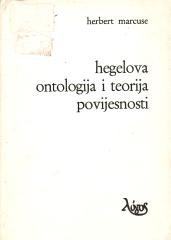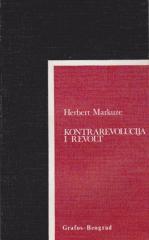Herbert Marcuse
German philosopher and sociologist (Berlin, July 19, 1898 – Starnberg, July 29, 1979), one of the most prominent members of the Frankfurt school. After studying philosophy in Berlin and Freiburg, in 1933 he emigrated before Nazism to the USA, where he became a professor at various universities. In the spirit of G. W. F. Hegel, K. Marx, S. Freud, E. Husserl and M. Heidegger, Marcuse developed his own conception of "critical theory of society" which aims to make philosophy more serious in modern industrial society. Opposing the system of "mindless mind", in which man functions as a one-dimensional being, Marcuse demands a kind of unorthodox practice, in which concrete human existence is not derived from a normative (ruling) concept of existence, but is understood from its direct occurrence. Ideology is an integral part of the production process, and technological rationality becomes the reality of totalitarian power. Main works: Hegel's Ontology and Theory of Historicity (Hegels Ontologie und die Theorie der Geschichtlichkeit, 1932), Reason and Revolution (1941), Eros and Civilization (1955), One-Dimensional Man , 1964), Culture and Society (Kultur und Gesellschaft, I–II, 1965), The End of Utopia (Das Ende der Utopie, 1967), Ideas for a Critical Theory of Society (Ideen zu einer kritische Theorie der Gesellschaft, 1968).
Titles in our offer
Hegelova ontologija i teorija povijesnosti
In this work, Marcuse deals with the interpretation of Hegel's philosophy through the prism of ontology and historicity, trying to connect it with questions that were relevant to existentialism and phenomenology in the interwar period.
Kontrarevolucija i revolt
In this book Herbert Marcuse makes clear that capitalism is now reorganizing itself to meet the threat of a revolution that, if realized, would be the most radical of revolutions: the first truly world-historical revolution.

